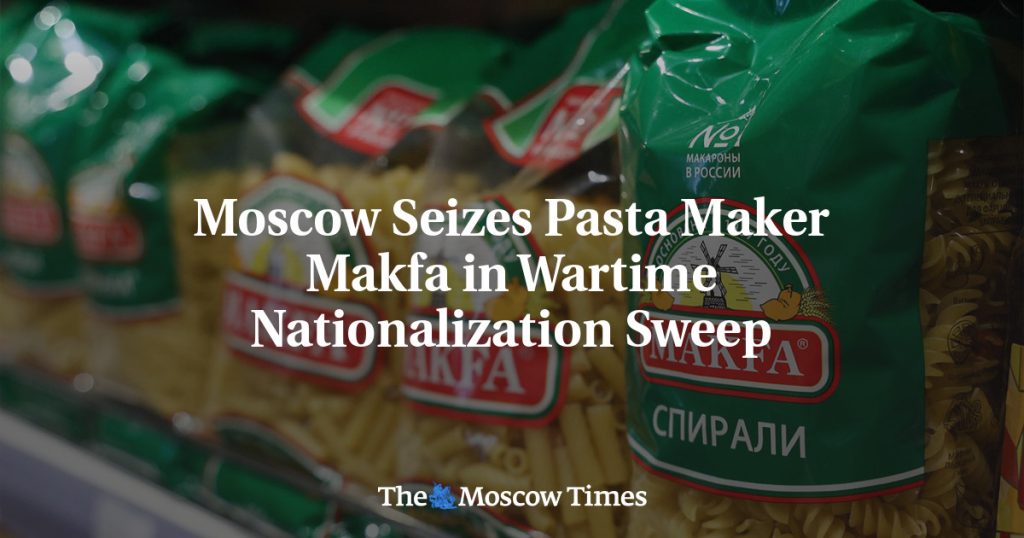A court in Russia’s Chelyabinsk region has ruled to hand over the assets of pasta manufacturer Makfa Group to the Russian state. The seizure of Makfa’s assets is part of the Kremlin’s drive of forced nationalizations since the invasion of Ukraine in February 2022, which resulted in foreign companies leaving the country. The Chelyabinsk Central District Court granted a request from the Russian Prosecutor General’s Office to seize the pasta maker due to accusations that its owners had violated anti-corruption laws by running the business while holding political office. The main beneficiaries of Makfa are former Chelyabinsk regional Governor Mikhail Yurevich and former regional lawmaker Vadim Belousov, who are facing bribery charges.
Yurevich and Belousov, who are suspects in corruption cases, are believed to be living abroad while Makfa continues to operate as one of Russia’s most recognized pasta brands. In 2023, Makfa Group reported a yearly revenue of 23.7 billion rubles. The defendants attempted unsuccessfully to avoid a closed-door hearing by transferring the case to an arbitration court. They also offered to buy back the company and contribute to Russia’s war effort in Ukraine as part of a settlement deal. Makfa intends to appeal the court’s decision, with the company’s lawyer planning to challenge the verdict with Russia’s Constitutional Court.
Russian authorities have been focusing on nationalizing key assets in the country’s defense industry following the invasion of Ukraine to gain greater control over military production. However, the asset seizures have increasingly targeted the civilian economy. In March, the government took control of the country’s largest winemaker linked to an arrested billionaire whose business assets were confiscated earlier in the year. President Vladimir Putin has denied that there are concerted efforts to re-nationalize key parts of the economy despite the growing number of nationalizations and asset seizures.
The forced seizure of Makfa Group’s assets is part of the broader trend of nationalizations and government takeovers of businesses in Russia since the invasion of Ukraine in February 2022. The targeting of Makfa, one of Russia’s most recognized pasta brands, is due to alleged violations of anti-corruption laws by the company’s owners who are public officials accused of bribery. Despite the significant revenue generated by Makfa, the court ruled to hand over its assets to the Russian state, with the company planning to appeal the decision and challenge it before Russia’s Constitutional Court.
The defendants, former regional Governor Mikhail Yurevich and lawmaker Vadim Belousov, are currently facing corruption charges and residing abroad. Their attempts to avoid a closed-door hearing and negotiate a settlement with the government were unsuccessful. The increase in asset seizures in Russia is part of efforts to gain more control over both the defense industry and civilian economy following the invasion of Ukraine. The government’s control over key industries and businesses, including winemakers and pasta manufacturers like Makfa, highlights the ongoing trend of nationalization and state intervention in the Russian economy.
President Vladimir Putin’s denial of concerted efforts to re-nationalize key parts of the economy contrasts with the government’s actions of seizing assets of companies like Makfa. The creeping drive of nationalizations is seen as an attempt by the Kremlin to consolidate power and control over key industries, despite potential negative impacts on the economy and business environment. As Russia continues to face economic challenges and global isolation due to its actions in Ukraine, the nationalization of businesses like Makfa Group adds to the uncertainty surrounding the country’s economic future and the implications for both domestic and foreign investors.















